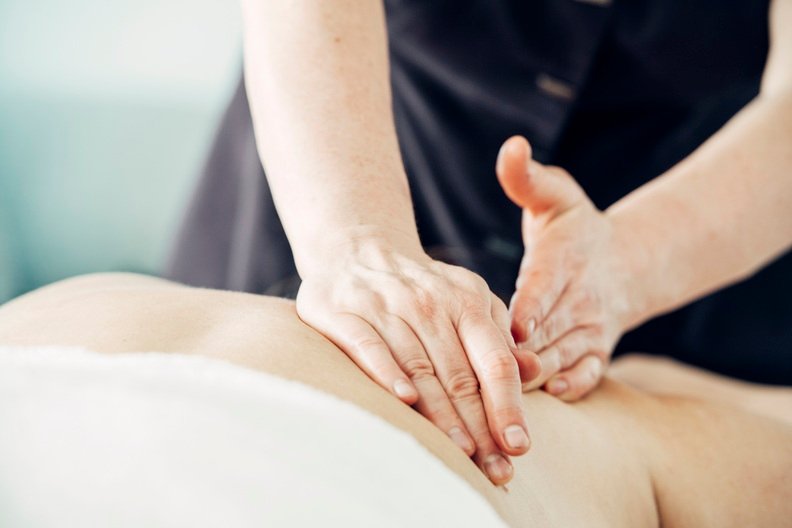DEEP TISSUE MASSAGE
This type of massage is used to break up scar tissue and break down muscle adhesions (the “knots” that we feel in our muscles are muscle adhesions, which are bands of rigid and painful muscle tissue). These knots can inhibit our circulation and cause pain and inflammation.
Benefits of this Deep tissue massage
- Pain relief: Whether you’re struggling with a sports injury, living with plantar fasciitis, or have a chronic condition such as sciatica or fibromyalgia, deep tissue massage can bring pain relief. Evidence shows that massage is a powerful pain reliever.
- Healing: The increased blood flow stimulated by the massage works to help reduce inflammation and promote faster healing of injuries.
- Lowers blood pressure: Studies have shown that massage can help to lower your blood pressure.
- Improved flexibility: Massage can improve the range of movement in tight muscles, allowing for better performance and safer workouts.
- Relaxation: Massage is a wellbeing wonder, and deep tissue massage has the same relaxing benefits. The massage boosts the body’s release of feel-good hormones like dopamine, serotonin and endorphins, ensuring you feel blissfully relaxed.
- Aids sleep: As well as helping you sleep better due to pain relief, a deep tissue massage can have a soporific effect later on due to the natural injection of serotonin your body receives.
- Break-up scar tissue: If you have large or notable scars, massage will help to release the tension created by the scar, working fascia loose and promoting greater flexibility in the area.
Massage also helps those who have:
- Fibromyalgia
- Tennis elbow
- Sports injuries
- Plantar fasciitis
- Postural problems
- Piriform is syndrome
- High blood pressure
What to do after DEEP TISSUE MASSAGE
- Drink plenty of fluids: Drink lots of water after a massage as this will help you to hydrate, aiding the increased blood flow and flushing out the toxins. Avoid caffeine or alcohol though.
- Eat something healthy: It’s quite normal to feel a bit hungry after a massage. Have a healthy fruit salad or a nutritious rainbow salad with some protein.
- Have a bath: If you’re feeling a little tender then a warm bath can help. If an injury area feels a bit sore then it can be worth using an ice pack.
- Rest and relax: Either have a nap, or at least put your feet up to enjoy your drink and listen to some soothing music. This will help your muscles to stay relaxed. Don’t head straight out to do sport or exercise, but leave at least 24 hours so that your body benefits from the massage.
When massage is a no-go
Because deep tissue massage is, well, deep, it’s not the best option for everyone. Certain conditions or factors can come into play.
Pregnancy
There can be benefits to massage during pregnancy, but you shouldn’t get a massage in the first trimester. Once you’re into your second trimester, you can get massages again! But the style and pressure should be modified based on you and your pregnancy.
You should avoid massaging your feet or hands, because stimulating these pressure points can induce labour. Imagine going into labour on a massage table. No, thanks!
Cancer
If you’re undergoing chemo or radiation therapy, you need to let your massage therapist know. These cancer treatments can decrease your white and red blood cell counts, so you may bruise more easily. Also, a deep massage can be taxing on your body, so a lighter massage is recommended.
Blood disorders
If you have a low platelet count, you’re more at risk of haematoma or bruising. This can also happen if you’re on blood thinners. You should also avoid firm pressure if you’re prone to blood clots.
Skin issues
Some autoimmune diseases — like scleroderma and lupus — can make your skin more irritable. Check with your doctor before getting a massage if you think firm contact will be an issue. You should also avoid massages if you have open wounds or sores on your skin.
Osteoporosis
This condition weakens your bones. Intense pressure can lead to a bone fracture (ouch!), so it’s best to stick to lighter massages.

